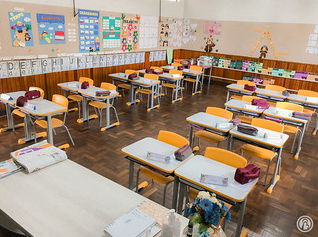
Children’s Commissioner highlights alarming trends in school attendance.
The Children’s Commissioner for England, Dame Rachel de Souza, has reported a worrying rise in school absences on Fridays among pupils since the onset of the pandemic. During a session with the Commons Education Select Committee, she revealed that nearly half of the 1.6 million children deemed persistently absent in the 2021/22 academic year were not away due to illness.
Dame Rachel expressed significant concern about the high levels of persistent absence, defined as missing 10% or more of school time. She noted that approximately 818,000 of these children were absent for reasons unrelated to health.
In her address, she explained that discussions with families have uncovered various factors contributing to this trend, including a growing belief that online learning is an adequate substitute for physical attendance. “We’re observing a notable increase in Friday absences that didn’t exist prior to the pandemic,” she stated, attributing this to parents being at home on Fridays, which influences children’s decisions to stay home.
The shift to online education during Covid-19 has led some families to question the necessity of attending school in person. Dame Rachel remarked that there is an emerging attitude among parents that suggests, “Why can’t we simply have online learning instead?”
She identified the primary reasons for absences as unmet special educational needs, anxiety, and mental health issues, alongside a group of students who have not returned to school since the pandemic began.
Alice Wilcock, the head of education at the Centre for Social Justice, echoed these sentiments, stating that a significant disengagement from education is being observed. She pointed out that local authorities have noticed a change in how parents perceive the importance of school attendance, with some now viewing it as optional.
Wilcock also mentioned a disparity in the support available to families, describing it as a “postcode lottery.” Many parents feel unprepared to assist their children with anxiety and online bullying, which has transitioned from physical bullying in classrooms to the digital landscape.
Furthermore, some families are choosing to take holidays during term time, often opting to pay fines rather than incur higher costs for holidays during peak periods. Dame Rachel noted the inequity in how families face these fines, stating that wealthier families might find it easier to pay the penalties, whereas those from lower-income backgrounds face greater challenges.
In conclusion, she called for reforms in the holiday industry and suggested that there should be moral pressure applied to address the impact of term-time holidays on school attendance.










